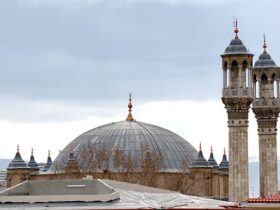Decolonization has been one of the major turning points in modern history. It marked the end of centuries of imperial domination and the birth of new independent nations across Asia, Africa, the Caribbean, and the Pacific. Just think of how only a handful of countries would have been running vast areas, not only politically but culturally, economically, and socially. And then, one by one, those territories began to take back their identities and map out their futures. Now, let’s deconstruct this story together, bit by bit.
What Is Decolonization?
Decolonization in simple terms means that the colonies get independence from the colonizers. It was not quite a matter of new maps alone: it was a question of restoring sovereignty, culture, and self. This means people rise up and tell the world, “This is our land, this is our history, this will be our future.”.
Another thing to consider is the independence of India in 1947. My grandfather used to tell me how it was mixed feelings-a combination of hope and chaos back in the day. He used to say that it was like coming out of some long, bizarre dream in which somebody else had ordered your life.
Why Did Decolonization Happen?
It is for a host of reasons: global shifts, internal struggles, and pure resilience. Here are the big ones:
1. World Wars and Economic Shifts
The two World Wars weakened the European powers to a point of drain in all ways possible: resources and morale. Britain and France could no longer afford to keep their empires intact. The emergence of the US and the Soviet Union as superpowers also contributed to the decolonization impetus-of course, for their own geopolitical reasons.
2. Nationalist Movements
People resisted from across the colonized world leaders such as Mahatma Gandhi to Kwame Nkrumah to Ho Chi Minh, millions found the courage to demand independence. These were not just political movements but spoke to identity, pride, and the right to self-determination.
3. Global Awareness
Human rights became the buzzwords of the post-Second World War years. United Nations came into being in 1945, and under its charter, the right of people to self-government was propagated. For the first time, the world showed signs of cognizance towards colonized nations.
Road to Independence
Decolonization did not occur with a magic wand; it was quite hectic and at times brutal. The process followed this course across the globe:
1. Asia
The independence of India in 1947 was a domino. Partition in India and Pakistan was tragic; millions were displaced, and many lives were lost. In other places, countries like Indonesia and Vietnam fought bloody wars to shake off Dutch and French control.
2. Africa
Mixed bags indeed the various negotiations and armed struggles were that these African nations faced. The first to gain its independence in 1957 in sub-Saharan Africa was Ghana. Thereafter, a host of other countries too joined their ranks. Whereas some went through the dreadful war with France, countries like South Africa had apartheid which delayed their freedom.
3.The Caribbean and Pacific
Smaller islands easily switched over to independence by merely negotiating. Examples are Jamaica and Trinidad, both of which acquired independence in the 1960s.
Challenges of New Nations
That was not all. The new nations faced some formidable challenges.
Economic Dependence: Most economies were still pegged to their former colonial masters. As my uncle used to say, “We were free, but our pockets weren’t.”
– Political Instability: Most of the countries, without stable systems of government in place, slipped either into dictatorships, coups, or civil wars.
– Cultural Reclamation: Native languages, traditions, and identities had been irreversibly lost to colonization. None of these were easy to reclaim.
Legacy of Decolonization
Decolonization remapped the world. We see its shadows everywhere today:
– Pluriverse of Nations: Most of the former colonies today are thriving, culturally vibrant nations.
– Globalization: Partial intermingling of cultures and ideas into art and food, and some current global trends, are because of colonization. Some territories, like Palestine and Western Sahara, are still fighting for independence.
I remember visiting Ghana and standing at the Cape Coast Castle, a former hub of the transatlantic slave trade. It was humbling to think about how far we’ve come and how much more there is to do. Decolonization is a reminder that freedom isn’t free—it’s fought for, reclaimed, and constantly nurtured.
In Conclusion,Decolonization was far from ideal, but all this was necessary. All this shows a statement of the human spirit and an inherent character in man’s love to be free. The empires are no more, but the scars, and more importantly, the lessons do live on. We make our journeys into the future. This is not the time for forgetting the past, to be wary of it, so we never again repeat it.

































Leave a Review